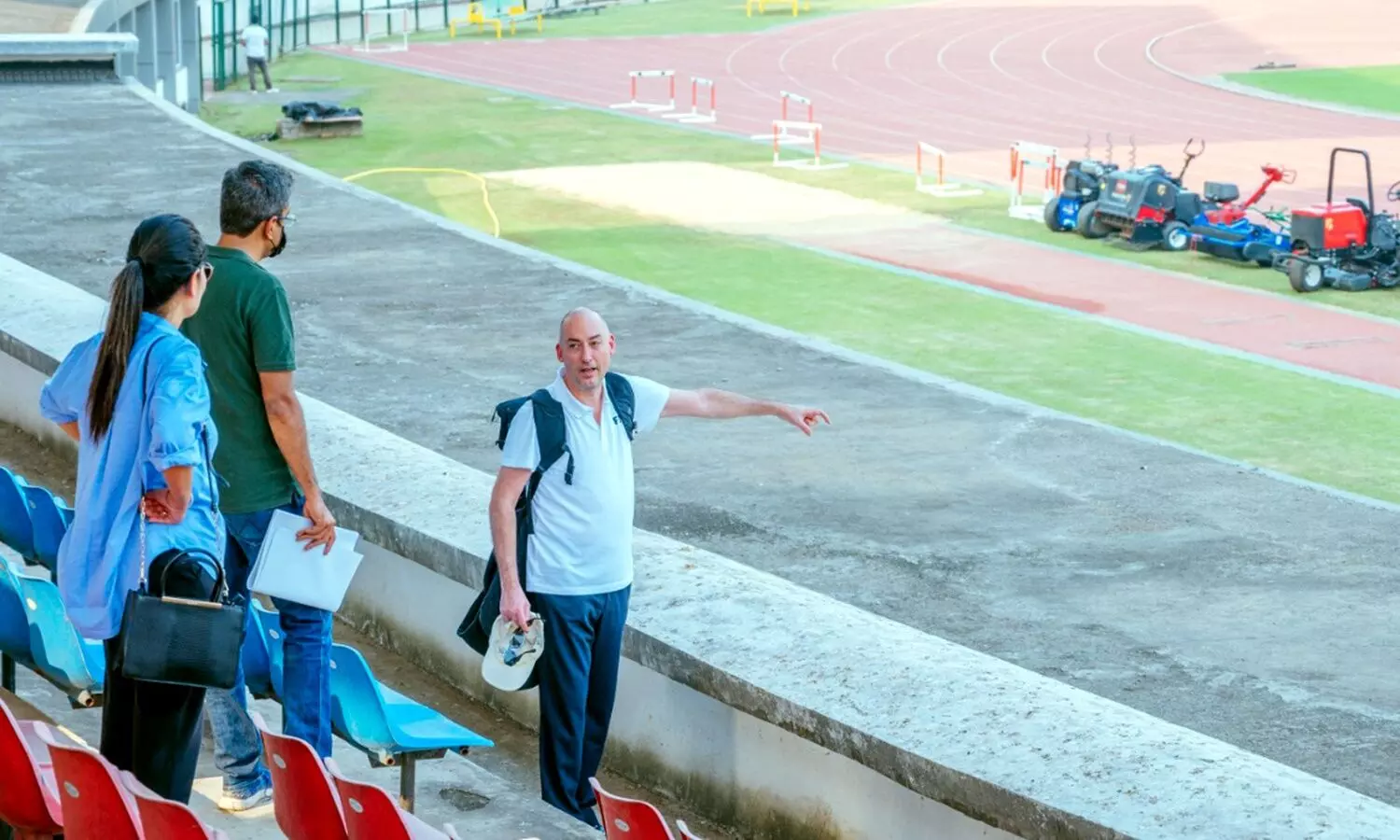Football
'Women's U-17 World Cup in India will be about much more than just football'
Ahead of the U-17 Women's World Cup this year, FIFA is inspecting the proposed host venues. In an exclusive interaction with the Bridge in Bhubaneswar, FIFA Director of Tournaments Jaime Yarza shed light on the preparations and what this World Cup means for football.

FIFA Director of Tournaments Jaime Yarza at the Kalinga Stadium in Bhubaneswar on Wednesday
FIFA Director of Tournaments Jaime Yarza and his team are currently touring different host cities in India to review the preparations for the FIFA U-17 Women's World Cup scheduled in October this year. The tournament was initially supposed to be held in 2020 but was postponed due to the pandemic. The Bridge caught up with Yarza for a detailed interview ahead of the tournament.
Q. You have hinted at a possible reduction in World Cup venues. Given that all the host cities are already prepping up for the tournament, what will be the fresh criteria to select among the five proposed venues?
The main criteria is to ensure the safety of everyone involved, specifically and mostly the players. We are talking about 16-17 year old players. Youth football and women's football has almost stopped internationally because of the pandemic. This World Cup is very important to kick off women's football again. To be able to ensure this happens, we need to have the safest procedures in place. So, the decision whether it is going to be five (cities) or reduced to one, will depend on the inspection of venues.
Q. Did you just say 'reduced to one city'? Are you looking at a scenario in which only one venue would be finalised in the end?
You know we always work with plan A, B and C. Obviously the last plan would be that one. Of course, we are not counting on that at all. But we wouldn't be professional if we don't plan that. So, there is a last resort plan. It would mean we would be forced to do a serious bio-bubble. But this is not being considered right now. It's just that my team and I like to have contingency plans.
Q. But are you considering hosting tournaments in a bio-bubble?
There are two aspects here. I think I was part of organising only two tournaments in which there was a complete bio-bubble. Most of them have been partial bubbles based on different parameters like distancing and regular testing. It is extremely difficult but I respect everyone who has done it.
But we don't want to do that because we don't think it is necessary under the current situation. So we are not considering it at all. Obviously, the plans will be in place if the pandemic doesn't improve or there is another variant that makes life complicated. But really, we don't want to go to a city and go into a bubble. We will do it only if it is extremely necessary.
Q. The AFC had conducted the Women's Asian Cup in January this year. A lot of players were infected and India had to ultimately withdraw from the tournament. Are there any lessons to learn from it?
I have huge respect for anybody who has organised international events under these circumstances. So both AFC, AIFF and LOC did an excellent job but were really unlucky. Various lessons are learnt from there. But most important is the right definition of what we want to achieve and how we want to achieve it. We have had other tournaments and cases obviously, but we didn't have major outbreaks. We had players get infected, but luckily we could keep on playing. We had the same issues as AFC had and believe me when I say it is extremely difficult because it is a virus which is so contagious.
Q. You have reviewed the preparations at Kalinga Stadium in Bhubaneswar. What are your thoughts on it?
I am pleased to be here because this was not a venue in 2017 when we hosted the U-17 World Cup in India. I heard this is a state of sports and it is growing a lot. We have been watching the stadium, evaluating all the functional areas as well as the state of renovations in the stadium. The stadium is still not finished. But we are confident that renovation can be done to the appropriate standards we require for the World Cup. In a general sense, it is a positive visit.
Q. But Kalinga Stadium is a multi-sports stadium. Is FIFA looking at more football exclusive stadiums?
There is a big question on whether you need a more specific football stadium or you need to concentrate on infrastructure which is adequate for everything. I think there are various factors we need to evaluate. If you have the majority playing and watching football, you need football facilities. If you have multi-sports events that people are interested in, then most probably from the development perspective, you need multi-sports facilities. But as FIFA, we would like to have more football specific infrastructure being built. We think it will contribute in the long run to Indian football.
Q. India hosted the U-17 World Cup in 2017. How different do you expect this U-17 Women's World Cup to be?
I think 2017 was a success for us and the AIFF. The whole country understands football is an attractive sport. Now, it is not only about football. It is about women, their development and empowerment. We know it doesn't have the appeal yet like men's football. But it is not only about sport, it is about empowerment and giving women the weapon to develop themselves. This tournament is very special as it gives a bigger message than just football.
